Blog and News
When Did Cancer Become a Judy Blume Novel?
- DateOctober 28, 2014
- AuthorMary Heather
- Categories
- Discussion6 Comments
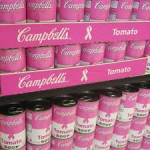 It’s the last week of pink. Soon our store aisles will return to their regular kaleidoscope of colors, and our autumn décor will resume its traditional tones of red, yellow, and rust.
It’s the last week of pink. Soon our store aisles will return to their regular kaleidoscope of colors, and our autumn décor will resume its traditional tones of red, yellow, and rust.
I, for one, feel relief.
At first, it didn’t bother me — the pinking of October, that is. I have nothing against legitimate cancer awareness campaigns. No ill-will toward the empowerment of those who have faced a diagnosis. In fact, I think it’s important to call attention to the things that can bring us down, to the interventions that can help save lives. I, too, have pledged money toward Race for the Cure, even purchased pink things in the wake of a friend’s mother’s diagnosis, in my clumsy attempt to make a difference. Why not? It was an easy thing to do.
And I though it embarrasses me to admit, I justified my passive support with the self-assurance that I was fostering camaraderie around the cause — funding team spirit for “a league of their own” — so that attention would be called to the sheer number of women facing cancer, and would motivate some change. But with each passing year, the most noticeable change is the not the scientific promise of finding the cause or the cure, but rather the pervasiveness of the Susan G. Komen brand. There’s a lot of pink, a lot of money, and still, a lot of people fighting cancer.
I know that for the recently diagnosed, there is comfort in numbers, comfort in knowing you’re not alone. But as a society, we should be unsettled by these numbers. We should be bothered by the way the Susan G. Komen Foundation’s breast cancer awareness campaign has begun to look more like Cancer Pride. Cancer isn’t a difference to be celebrated and accepted. It’s still an awful disease. (For more on the commercialization of breast cancer, see the documentary Pink Ribbons, Inc., based on the work of Breast Cancer Action and the late breast cancer activist, Barbara Brenner.)
But the pinking of October seems to have distracted us from this fact. Instead, Pink-tober assures me that there will be pink M&Ms just in time for my daughter’s birthdays, and reminds me with cute little Facebook posts that I should “feel my boobies” to “care for my pair” — underscored with Pinterest pictures of adorable Mammo-Graham treats.
Pink-tober adorns NFL players with pink cleats and football gloves (an ironic act of support from an organization historically blind to violence against women), and celebrates the use of pink drill bits to frack for natural gas (courtesy of the Susan G. Komen Foundation’s partnership with Baker Hughes, whose jaunty ad boasts “doing our bit for the cure.” Get it? Never mind that fracking threatens air and drinking water with carcinogenic chemicals).
In short, Pink-tober has taken a serious health condition — sometimes a matter of life and death — and reduced it to the parody of a South Park episode, or the whimsy of a tampon ad. But what concerns me the most — beyond the Susan G. Komen Foundation’s misguided decision to hitch its moneymaking awareness campaign to outrageously inappropriate partners — beyond the hypocrisy of this brazen pinkwashing, it’s the normalization/celebration of cancer that has me so upset.
Why? Because it suggests that we’ve given up on cancer prevention. Invites us to accept its inevitability.
Last year I turned 40, which means that I was advised by my doctor to begin getting regular mammograms, to submit to the annual mashing of my girls. A milestone for my breasts.
I remember their first milestone. I was in the 5th grade, just budding. Planning with my friends in hushed whispers during lunch — choosing which day we would all wear our training bras, which day we would practice being women. We had already read Are You There, God? It’s Me, Margaret to introduce us to our fate. A few years later, we huddled together in a friend’s basement, exchanging notes on who among us had gotten their periods. Those who had reached the milestone answered questions for those of us who hadn’t.
I thought of those moments again this year — those moments when I watched others reach their landmarks so I would know what to do when I finally reached mine. Judy Blume herself was diagnosed with cancer in 2012. Another friend of mine was diagnosed last month. And I realize now that I am one of a only few in my close circle of friends who hasn’t been diagnosed. We are only in our forties.
It feels like that time in the basement, when my friends and I all sat in a circle sharing notes about what’s to come — like a scene from a Judy Blume novel. Almost everyone has a story to share — except for me, because I haven’t gotten my cancer yet.
Take note: This isn’t the hope that is being advertised. Please, think before you pink. Reject the normalization of cancer, and the conflicts of interest in cancer campaigns. Support cancer organizations that prioritize cancer prevention as high as their fundraising for “awareness.” Remember, detection does not equal prevention. They are NOT one in the same.
Photo credits:
Judy Blume’s Are You There, God? It’s Me, Margaret Book Cover from www.amazon.com
Feel Your Boobies image from www.owningpink.com
Mammo-Graham images from simplethrift.wordpress.com
About Mary Heather
I am an East-coaster and a West-coaster. I am an academic and a creative spirit. I am an environmental scientist who always wanted to write, and a writer with a nagging nostalgia for the complexities of environmental science. Above all, I am a mother — so whether I’m writing about the natural world, family, or place, I like to consider my work as environmental advocacy in the broadest sense.
Tags
6 Comments
Leave a Reply to Andrea Cancel Reply
Recent Posts
- Five Year Mark
- On Writer’s Block: Notes from the Kitchen Island
- The Things They Carried
- Notes from a Soft Target
- On Advocacy and Love
- 2018 Moravian College Writers’ Conference
- Empathy
- The Fact of a Penis
- Labor Day
- On Hiding
- Memorial Day
- #CNF Podcast Episode 43
- Bay Path University’s 15th Writers’ Day
- On Authority and Punishment
- If There Were No Rules
- Science is a Refugee
- 2017 Moravian College Writers’ Conference
- Thanks, Food & Prayers
- Eviction
- Love Does Not Equal Silence
2014 © Mary Heather Noble. Website Design and Development by The Savy Agency.


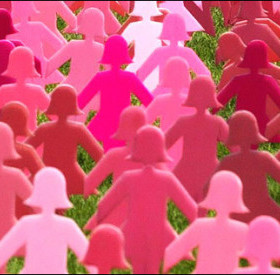
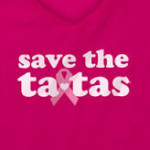
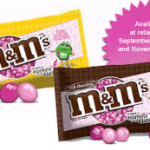
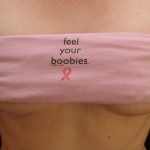
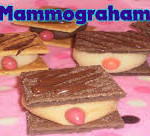
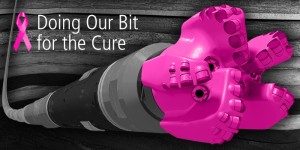
This is so great. I find the pinkification of cancer so demeaning and trivializing. And don’t get me started on the conflicts of interest of the chemical manufacturers with pharmaceutical branches, profiting off cancer at both ends of the spectrum. You have probably read Barbara Ehrenreich’s essay about the infantalizing nature of the whole pink culture http://barbaraehrenreich.com/website/cancerland.htm, but it’s always a good one to go back and read again.
Thank you for writing this. I don’t want to be reminded for the whole month of October how sick my mother was for an entire year. I don’t want to remember cancer. I want to forget it ever existed. I’ll donate money to places like Beth Israel (87% goes to research) where my husband died from cancer and to St. Jude’s Children’s Hospital where children are treated for free. But I don’t need to be reminded for thirty one days straight that cancer ripped my family apart, no thank you. I check my breasts at least once a week not because the world has been pinkwashed but because I don’t want to leave my children without a mother. Be responsible and don’t drink the pink.
Very well said. I’ve had very similar thoughts…always been uncomfortable with ‘commercialization’ of the brand.
Thank you for eloquently articulating what I have felt over the pay several years since I was diagnosed with breast cancer. When I have tried to express similar views (not as well as you did), I have been met with odd stares and a quick end to the conversation as if I have said something terrible.
Actually, I’m a bit jealous of all the attention Breast Cancer receives. I’m a uterine cancer survivor and we get no press at all. I don’t know if I would have been offended by all the pink or not, had I been a breast cancer survivor. But you bring up a good point about moneymaking. How much of all of the profit from this hype actually goes to treatment and research. I wish there were more public accounting of charitable contributions. Regarding prevention. Whew, that’s a big issue. Especially for an environmentalist!
Speaking of environmentalism, congratulations on the Siskiyou Prize. I’m an eco-fiction writer (actually submitted to Ashland Creek contest, too, alas) so I want to encourage the expansion of environmental writing, both fiction and nonfiction. You can facebook friend me at https://www.facebook.com/Auntie.Carolyn.ONeal if you’d like to keep in touch. Thanks!
Thanks so much for your comment, Carolyn! I will definitely look you up on Facebook. Cheers, MHN